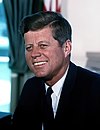
The Munich Agreement was an agreement reached in Munich on 30 September 1938, by Nazi Germany, Great Britain, the French Republic, and Fascist Italy. The agreement provided for the German annexation of part of Czechoslovakia called the Sudetenland, where more than three million people, mainly ethnic Germans, lived. The pact is also known in some areas as the Munich Betrayal, because of a previous 1924 alliance agreement and a 1925 military pact between France and the Czechoslovak Republic.
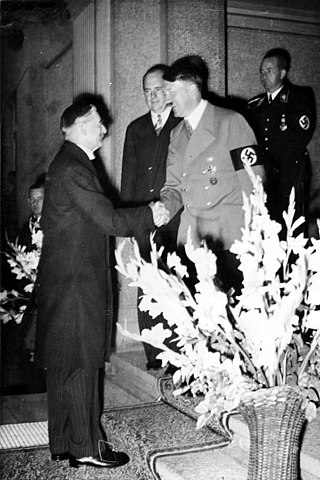
Appeasement, in an international context, is a diplomatic negotiation policy of making political, material, or territorial concessions to an aggressive power to avoid conflict. The term is most often applied to the foreign policy of the British governments of Prime Ministers Ramsay MacDonald, Stanley Baldwin and Neville Chamberlain towards Nazi Germany and Fascist Italy between 1935 and 1939. Under British pressure, appeasement of Nazism and Fascism also played a role in French foreign policy of the period but was always much less popular there than in the United Kingdom.
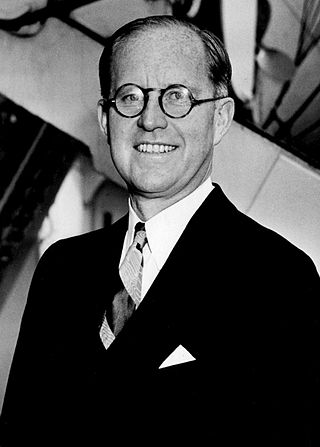
Joseph Patrick Kennedy was an American businessman, investor, philanthropist, and politician. He is known for his own political prominence as well as that of his children and was a patriarch of the Kennedy family, which included President John F. Kennedy, Attorney General and Senator Robert F. Kennedy, and longtime Senator Ted Kennedy.
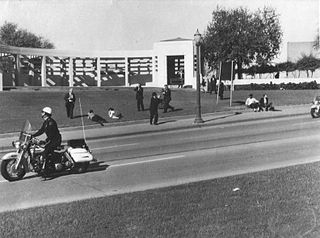
The "umbrella man", later identified as Louie Steven Witt, is a figure who appears in several films and photographs of the assassination of United States President John F. Kennedy. He was one of the closest bystanders when the President was first struck by a bullet, near the Stemmons Freeway sign within Dealey Plaza. The figure's behavior raised suspicion among investigators due to his maneuvering of an umbrella, as Kennedy was passing him, despite clear skies.

Profiles in Courage is a 1956 volume of short biographies describing acts of bravery and integrity by eight United States senators. The book profiles senators who defied the opinions of their party and constituents to do what they felt was right and suffered severe criticism and losses in popularity as a result. It begins with a quote from Edmund Burke on the courage of the English statesman Charles James Fox, in his 1783 "attack upon the tyranny of the East India Company" in the House of Commons, and focuses on mid-19th-century antebellum America and the efforts of senators to delay the American Civil War. Profiles in Courage was widely celebrated and became a bestseller. It includes a foreword by Allan Nevins.
Guilty Men is a British polemical book written under the pseudonym "Cato" that was published in July 1940, after the failure of British forces to prevent the defeat and occupation of Norway and France by Nazi Germany. It attacked fifteen public figures for their failed policies towards Germany and for their failure to re-equip the British armed forces. In denouncing appeasement, it defined the policy as the "deliberate surrender of small nations in the face of Hitler's blatant bullying". A classic denunciation of the former government's policy, it shaped popular and scholarly thinking for the next two decades.

"Peace for our time" was a declaration made by British Prime Minister Neville Chamberlain in his 30 September 1938 remarks in London concerning the Munich Agreement and the subsequent Anglo-German Declaration. The phrase echoed Benjamin Disraeli, who, upon returning from the Congress of Berlin in 1878, had stated, "I have returned from Germany with peace for our time." The phrase is primarily remembered for its bitter ironic value since less than a year after the agreement, Germany's invasion of Poland began World War II.

The lesson of Munich, in international relations, refers to the appeasement of Adolf Hitler at the Munich Conference in September 1938. To avoid war, France and the United Kingdom permitted Nazi Germany to incorporate the Sudetenland. Earlier acts of appeasement included the Allied inaction towards the remilitarization of the Rhineland and the Anschluss of Austria, while subsequent ones included inaction to the First Vienna Award, the annexation of the remainder of Czech Lands to form the Protectorate of Bohemia and Moravia, as well as the 1939 German ultimatum to Lithuania forcing it to cede the Klaipėda Region.
George C. Peden is an emeritus professor of history at Stirling University, Scotland.
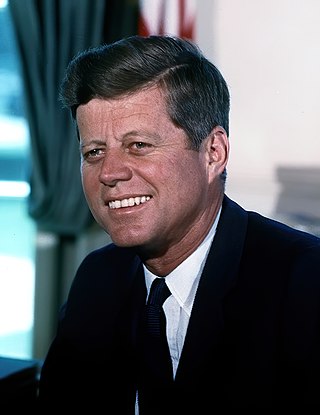
John Fitzgerald Kennedy, often referred to as JFK, was an American politician who served as the 35th president of the United States from 1961 until his assassination in 1963. He was the youngest person elected president. Kennedy served at the height of the Cold War, and the majority of his foreign policy concerned relations with the Soviet Union and Cuba. A Democrat, Kennedy represented Massachusetts in both houses of the United States Congress prior to his presidency.
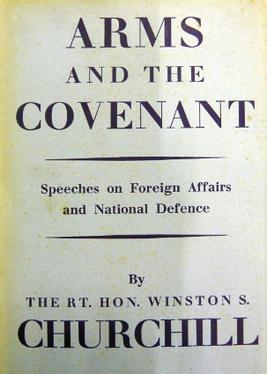
Arms and the Covenant is a 1938 non-fiction book written by Winston Churchill. It was later published in the United States as While England Slept; a Survey of World Affairs, 1932–1938. It highlighted the United Kingdom's lack of military preparation to face the threat of Nazi Germany's expansion and attacked the current policies of the British government, led by the Conservative Prime Minister Neville Chamberlain. The book galvanised many of his supporters and built up public opposition to the Munich Agreement.

An Unfinished Life: John F. Kennedy, 1917–1963 is a 2003 biography of the 35th president of the United States, John F. Kennedy (JFK), who was assassinated in 1963. It was written by Bancroft Prize-winning historian Robert Dallek, a prominent History professor at Boston University. The author is a presidential historian who taught at Columbia University and UCLA prior to accepting his professorial role in Boston, and was the author of nearly two-dozen books. Dallek researched JFK for five years, using National Security Archives, oral histories, White House tapes, and medical records in his preparations. Dallek contends that historians have underestimated JFK's achievements, especially in regards to his impressive accomplishments in foreign policy, including his averting nuclear war during the Cuban Missile Crisis and his early steps towards detente with the Soviet Union, which began with his Partial Nuclear Test Ban Treaty of August 5, 1963.
André Charles Corbin (1881–1970) was a French diplomat who served as ambassador to Britain before and during the early part of the Second World War from 1933 to 27 June 1940.
Samuel Hutchison Beer was an American political scientist who specialized in the government and politics of the United Kingdom. He was a longtime professor at Harvard University and served as president of the Americans for Democratic Action in the early 1960s.
Frank McDonough is a British historian of the Third Reich and international history.

Rose Elizabeth Fitzgerald Kennedy was an American philanthropist, socialite, and matriarch of the Kennedy family. She was deeply embedded in the "lace curtain" Irish-American community in Boston. Her father, John F. Fitzgerald, served in the Massachusetts State Senate (1892–1894), in the U.S. House of Representatives, and as Mayor of Boston. Her husband, Joseph P. Kennedy Sr., chaired the U.S. Securities and Exchange Commission (1934–1935) and the U.S. Maritime Commission (1937–1938), and served as United States Ambassador to the United Kingdom (1938–1940). Their nine children included United States President John F. Kennedy, U.S. Senator Robert F. Kennedy of New York, U.S. Senator Ted Kennedy of Massachusetts, Special Olympics founder Eunice Kennedy Shriver, and U.S. Ambassador to Ireland Jean Kennedy Smith. In 1951, Rose Kennedy was ennobled by Pope Pius XII, becoming the sixth American woman to be granted the rank of Papal countess.

The European foreign policy of the Chamberlain ministry from 1937 to 1940 was based on British Prime Minister Neville Chamberlain's commitment to "peace for our time" by pursuing a policy of appeasement and containment towards Nazi Germany and by increasing the strength of Britain's armed forces until, in September 1939, he delivered an ultimatum over the invasion of Poland, which was followed by a declaration of war against Germany.

Fredrik Logevall is a Swedish-American historian and educator at Harvard University, where he is the Laurence D. Belfer Professor of International Affairs at the John F. Kennedy School of Government and professor of history in the Harvard Faculty of Arts and Sciences. He is a specialist in U.S. politics and foreign policy. Logevall was previously the Stephen and Madeline Anbinder Professor of History at Cornell University, where he also served as vice provost and as director of the Mario Einaudi Center for International Studies. He won the 2013 Pulitzer Prize for History for his book Embers of War: The Fall of an Empire and the Making of America’s Vietnam. His most recent book, JFK: Coming of Age in the American Century, 1917-1956 (2020), won the Elizabeth Longford Prize for Historical Biography and was a New York Times Notable Book of the Year.
This bibliography of John F. Kennedy is a list of published works about John F. Kennedy, the 35th president of the United States.

JFK: Coming of Age in the American Century, (1917–1956) is a 2020 biography written by historian Fredrik Logevall. Published by Random House in September 2020, the work examines the education, military service, and political career of an American president who had acquired a great deal of his knowledge of International Relations in his early years. According to Logevall, it was Kennedy's knowledge of international relations gained in his youth that allowed him to steer the nation through the perilous deadlocks, short-term victories, and failures of the Cold War. These included his disastrous attempt to thwart Castro's communist takeover of Cuba at the Bay of Pigs, and the more positively received resolution of the 1962 Cuban Missile Crisis. Kennedy's brief Presidency was also noted for expediting the early stages of military détente with the Soviet Union by the signing of the Nuclear Test Ban Treaty in August 1963 and its enactment in October of that year. Logevall observed that Kennedy's awareness of the imperialistic nature of Russia during the Cold War and his wariness of the nature of Communist expansionism later influenced his goals as President to keep America first in diplomacy, improve ties with foreign countries in the Americas, and to keep America first in scientific and military technology. This focus led Kennedy to later establish the Peace Corps, Alliance for Progress with Latin America, and the continuation of the Apollo program with the goal of landing a man on the Moon before 1970.














